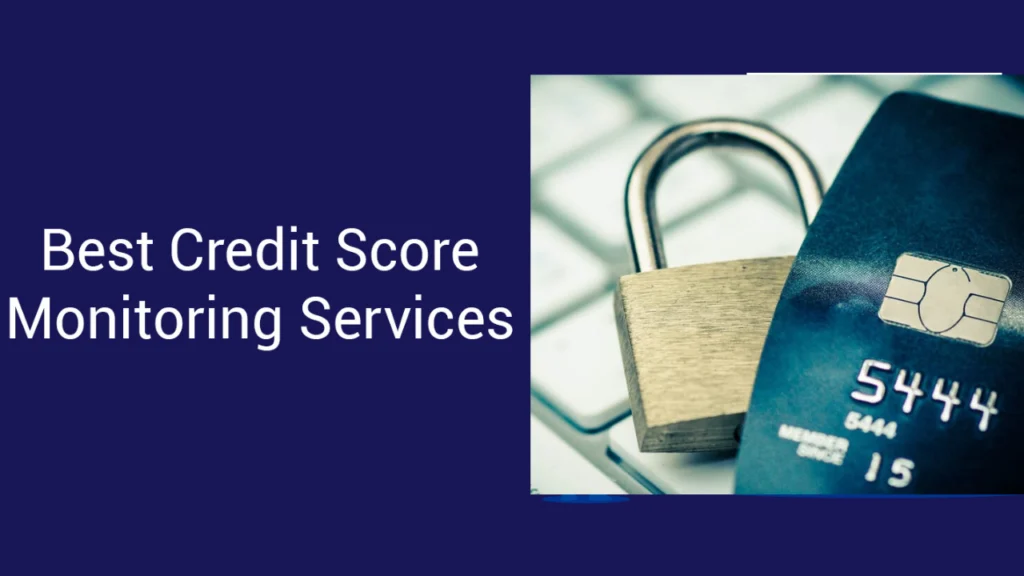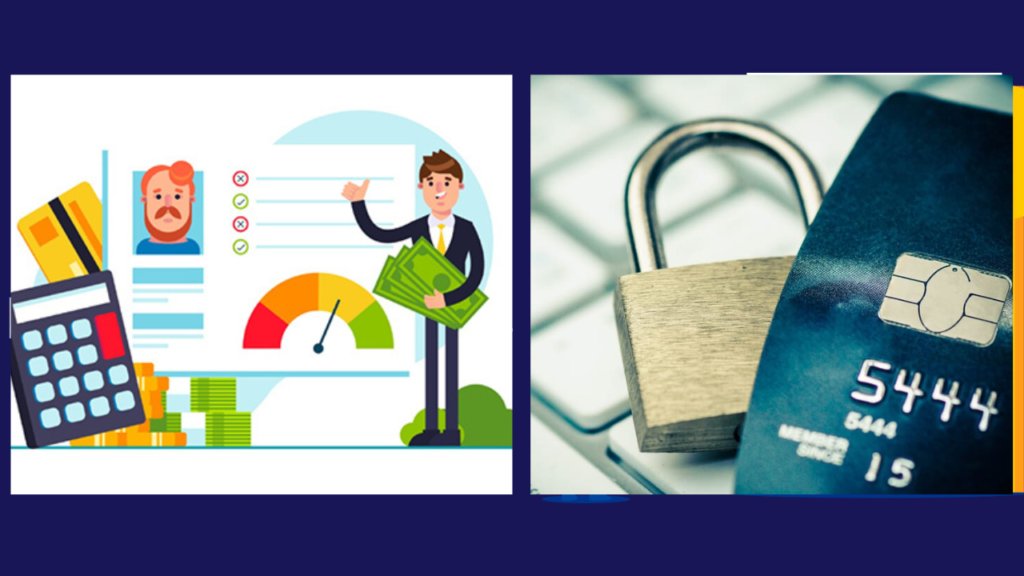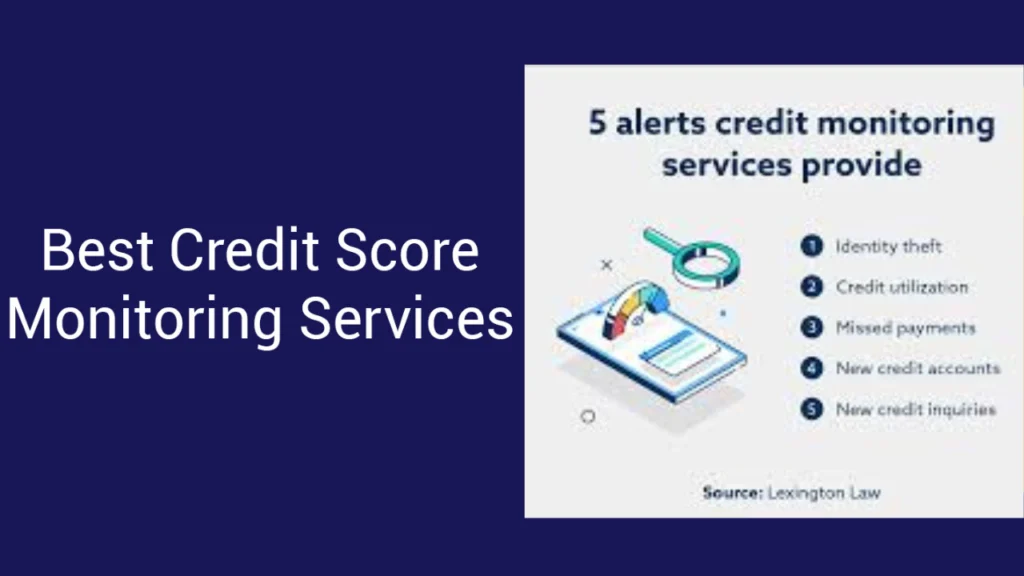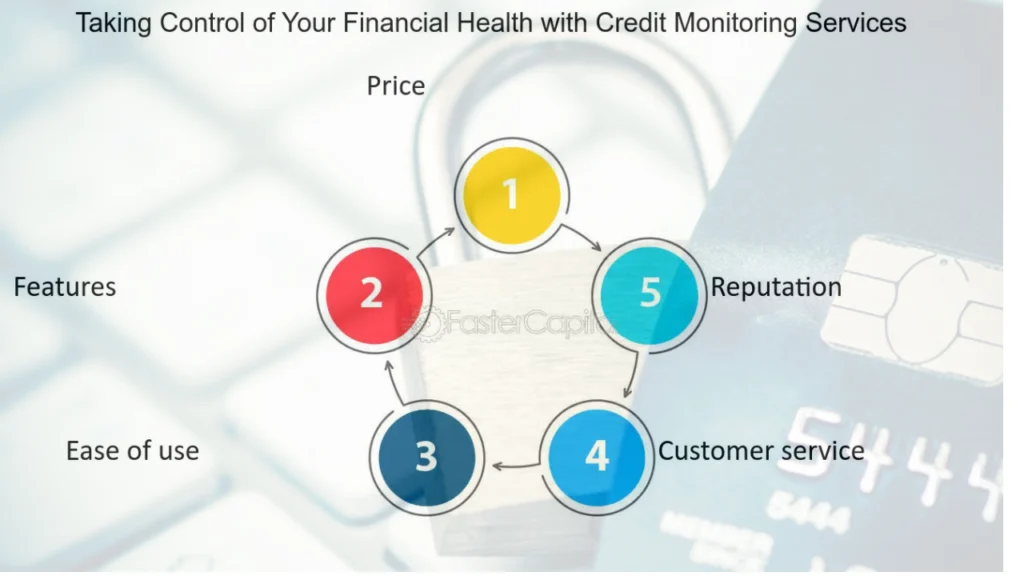Let’s be honest – most of us don’t really think about our credit scores until we need them. It’s like remembering you left your laundry in the washing machine a week ago – you know it’s important, but it’s easy to forget. This is where credit monitoring services step in to save the day! Imagine a helpful, vigilant friend who’s constantly watching your credit for any shady business, letting you know when something’s up – and all without asking for anything in return… well, maybe a small subscription fee.

In this post, we’ll take a deep dive into what credit monitoring services are, why they’re worth considering, the pros and cons, and even where they shine the most. Plus, we’ll sprinkle in some humor to keep things light because finances can be dry, but they don’t have to be boring!
What Are Credit Monitoring Services?
In simple terms, credit monitoring services keep an eye on your credit reports for you. They notify you when there are significant changes, such as new accounts being opened, credit inquiries, missed payments, or anything that looks fishy. Think of them like a credit watchdog that sends you a text the moment it hears a suspicious noise.
These services typically monitor one or more of the major credit bureaus: Equifax, Experian, and TransUnion. Whenever something changes, they’ll send you a heads-up. It’s like having a “breaking news” alert, but instead of something world-shattering, it’s about your credit – which, let’s be honest, sometimes feels just as important!
Why Should You Care About Credit Monitoring?
Let’s picture this: You’re applying for a loan to buy your dream house, and the bank suddenly says, “Sorry, your credit score is too low.” You panic and wonder, “How did that happen?” Well, if you were using a credit monitoring service, you would’ve known exactly when and why your score dipped, and you’d have had time to fix it before standing awkwardly in front of the loan officer.
Whether you’re planning for a big purchase, concerned about identity theft, or simply want to keep your finances in check, credit monitoring services can be incredibly useful.
How Does Credit Monitoring Work?
Once you sign up for a service, you grant it permission to track your credit reports. They monitor the following:
- New Credit Inquiries: Did someone apply for a new credit card in your name? Hopefully, that was you!
- New Accounts: Whether it’s a car loan or a mortgage, you’ll get a heads-up when new accounts are opened.
- Missed Payments: Uh-oh, did you forget to pay your credit card bill? They’ll remind you if that affects your score.
- Credit Utilization: Are you nearing your credit limit? This can ding your score, and they’ll let you know before it becomes an issue.

Think of them like a babysitter for your credit score. They don’t stop everything from happening, but they let you know when something’s up so you can take action.
Pros of Credit Monitoring Services
Let’s talk about the bright side first because who doesn’t like good news?
- Peace of Mind: It’s like having a credit safety net. You don’t have to check your credit report constantly, and if something unusual happens, you’ll be alerted right away.
- Early Warning: If your identity is stolen or someone tries to open credit in your name, you’ll know about it before it becomes a bigger mess to clean up. It’s like catching the milk before it spills.
- Convenience: Some services offer credit score simulators, helping you see how financial decisions (like paying off debt or taking out a loan) will impact your score. No need to guess; they’ll do the math for you!
- All-in-One Reports: Some services allow you to see reports from all three credit bureaus at once. It’s like getting three scoops of ice cream instead of just one.
- Identity Theft Protection: Many credit monitoring services also provide identity theft insurance or fraud resolution services. It’s like having a superhero on standby in case someone tries to mess with your finances.
Cons of Credit Monitoring Services
Of course, nothing’s perfect. Here are some drawbacks you should keep in mind.
- Cost: While some services are free (we’re looking at you, Credit Karma), others can charge a pretty penny – sometimes $10 to $30 per month. That might not sound like a lot, but it adds up over time. (You could’ve bought quite a few tacos with that money!)
- Limited Control: These services don’t prevent fraud or errors from happening. They’re like security cameras – they can tell you something happened, but they can’t stop it in real-time. You’ll still need to take action when an alert comes in.
- Overload of Alerts: Some services will notify you about every single change, even minor ones. This can lead to “alert fatigue,” where you get so many notifications you might start ignoring them. It’s like getting a ping every time someone likes your Instagram post – it’s great, but after the 100th time, you just don’t care.
- Not Always Full Coverage: Some credit monitoring services only track one or two of the major credit bureaus, meaning you might miss out on changes reported to the third. It’s like trying to watch your house with only two cameras – you’ve got good coverage, but there’s a blind spot.

Application Areas of Credit Monitoring Services
These services can come in handy in a variety of situations:
- Big Purchases: Planning to buy a house or car? You’ll want to keep your credit in top shape. Monitoring services will help you spot issues before they derail your plans.
- Loan Applications: Before you apply for any major loan, it’s essential to keep tabs on your credit score to ensure you get the best interest rates.
- Preventing Identity Theft: With so much personal data out there, identity theft is a real threat. Credit monitoring services can alert you to suspicious activity, giving you the chance to act fast.
- Rebuilding Credit: If you’re working on improving your credit score, credit monitoring can help track your progress and ensure you’re on the right path.
Popular Credit Monitoring Services
Not all credit monitoring services are created equal. Here are some popular ones that have stood the test of time:
- Credit Karma: Free, easy to use, and loaded with useful financial advice. It’s the “best friend” of the credit world.
- Experian CreditWorks: Offers comprehensive monitoring, including your FICO score and identity theft protection.
- Identity Guard: For those who want full identity theft protection along with credit monitoring, this one’s a great choice.
- LifeLock: Known for its robust identity theft protection features, including reimbursement for stolen funds.
Pros and Cons Recap
Pros:
- Peace of mind
- Early fraud detection
- Financial insights (like simulators)
- Convenient all-in-one reports
- Identity theft protection
Cons:
- Cost (for paid services)
- Only alerts, no prevention
- Can be overwhelming with notifications
- Not all services cover all credit bureaus
key points of Credit Monitoring Services, including their pros, cons, application areas, and additional features.
| Aspect | Description |
|---|---|
| What is it? | Credit monitoring is a service that tracks changes to your credit report and alerts you to suspicious activity. |
| Purpose | To help protect against identity theft, monitor credit health, and provide alerts for changes in your credit report. |
| Pros | – Alerts on suspicious activities – Monitors credit score and changes – Helps detect identity theft early |
| Cons | – Some services can be expensive – Won’t prevent fraud, only detect it – Not all services monitor all bureaus |
| Free vs Paid Services | Free services like Credit Karma offer basic monitoring. Paid services provide additional features like identity theft protection. |
| Application Areas | – Personal credit management – Fraud detection – Identity theft recovery – Loan applications |
| Key Features | – Real-time alerts – Monitoring of all three credit bureaus (Equifax, Experian, TransUnion) – Identity theft insurance |
| Popular Services | Credit Karma, Experian, Identity Guard, LifeLock |
| Best for | – Individuals who want to track their credit health – People worried about identity theft |
| Potential Drawbacks | – Over-reliance on monitoring could lead to complacency – Not a full protection service |
Additional Features (in detail):
| Feature | Description |
|---|---|
| Credit Score Monitoring | Provides frequent updates on your credit score and changes, helping you track credit health. |
| Fraud Alerts | Immediate alerts when suspicious or unauthorized activities are detected on your credit report. |
| Identity Theft Insurance | Some services include identity theft insurance, covering costs associated with recovering from identity theft. |
| Social Security Number (SSN) Tracking | Monitors whether your SSN is used illegally or shared on black markets. |
| Dark Web Scanning | Scans the dark web for your personal information, such as SSNs or credit card numbers, alerting you to risks. |
| Credit Freeze Assistance | Helps users place a credit freeze with all three bureaus, preventing unauthorized access to credit. |
| Lost Wallet Assistance | Provides services to quickly cancel credit cards and other personal documents in case of loss or theft. |
Final Thoughts (With a Bit of Humor)
Credit monitoring services are like the gym for your credit score – they keep things in shape, even when you’re not paying attention. Sure, you can technically go without them, but having that extra layer of security is reassuring, especially if you’re prone to forgetting important financial stuff (like when your credit card bill is due).

In the end, it’s up to you whether to invest in a service or take a DIY approach. Either way, it’s worth keeping an eye on your credit – after all, you wouldn’t want to find out you’ve got a “kick me” sign on your financial back.
So, credit monitoring: it’s not flashy, but it sure beats dealing with the mess when things go wrong. Now go enjoy those tacos with the money you saved by not ignoring your credit health!
Here are 50 FAQs related to credit monitoring services along with their answers. They cover a wide range of common questions to help users better understand how credit monitoring works, its importance, and how to get the most out of it.
1. What is a credit monitoring service?
A credit monitoring service tracks your credit report for changes, such as new accounts, inquiries, or signs of identity theft, and alerts you to any suspicious activity.
2. Why should I use a credit monitoring service?
Credit monitoring helps protect you from fraud and identity theft by notifying you when there’s a significant change to your credit report. It gives you peace of mind and helps you maintain a healthy credit score.
3. How do credit monitoring services work?
They continuously monitor your credit report with one or more credit bureaus and notify you when something significant changes, like a new credit inquiry, late payment, or newly opened account.
4. Are credit monitoring services free?
Some services, like Credit Karma, are free, but many others charge a monthly fee. The cost of paid services can range from $10 to $30 or more, depending on the features.
5. What’s the difference between credit monitoring and credit reporting?
Credit monitoring continuously watches your credit report for changes and alerts you, while credit reporting provides you with a summary of your credit history and score when requested.
6. Will a credit monitoring service prevent identity theft?
No, credit monitoring can’t prevent identity theft, but it can alert you when suspicious activity occurs, helping you respond quickly to minimize damage.
7. Do credit monitoring services monitor all three credit bureaus?
Some services monitor all three major bureaus (Equifax, Experian, and TransUnion), while others might only track one or two. Be sure to check what each service offers.
8. How often does a credit monitoring service check my credit?
Credit monitoring services typically check your credit report daily and notify you immediately when there’s a significant change.
9. What kinds of changes will I be alerted to?
You’ll be notified of new credit inquiries, newly opened accounts, changes in your credit limits, late payments, and any updates to personal information on your report.
10. Can I sign up for credit monitoring even if I have bad credit?
Yes, credit monitoring services are available to everyone, regardless of their credit score. They’re especially useful if you’re working to rebuild your credit.
11. How much does credit monitoring cost?
It varies. Some services are free, while others charge a monthly fee ranging from $10 to $30 or more, depending on the features offered.
12. Are free credit monitoring services reliable?
Yes, free services like Credit Karma are reliable, but they may not offer the same level of detail and protection as paid services. They typically don’t cover all three credit bureaus.
13. How does credit monitoring protect me from identity theft?
By alerting you to suspicious activity, credit monitoring helps you catch identity theft early so you can take action before it does significant damage.
14. What should I do if I get an alert from my credit monitoring service?
If the alert looks suspicious, contact the creditor or the credit bureau immediately to investigate the issue and take steps to protect your identity, like placing a fraud alert or freezing your credit.
15. Can I cancel a credit monitoring service anytime?
Yes, most credit monitoring services allow you to cancel your subscription at any time. Be sure to check their cancellation policy before signing up.
16. How do I sign up for a credit monitoring service?
You can sign up directly through the website of a credit monitoring service. You’ll typically need to provide some personal information, such as your Social Security number and date of birth.
17. Will signing up for credit monitoring hurt my credit score?
No, signing up for credit monitoring will not affect your credit score. These services perform a soft inquiry, which doesn’t impact your score.
18. How can credit monitoring help improve my credit score?
By alerting you to changes in your credit report, you can take action to address issues like late payments or high credit utilization, helping you improve your credit score over time.
19. Is credit monitoring the same as a credit freeze?
No, a credit freeze prevents lenders from accessing your credit report, while credit monitoring simply alerts you to changes in your credit.
20. What is a credit inquiry?
A credit inquiry occurs when a lender checks your credit report to determine your creditworthiness. Too many inquiries in a short period can lower your credit score.
21. Can I get my credit score through a credit monitoring service?
Yes, many credit monitoring services provide access to your credit score as part of their package.
22. What’s the best credit monitoring service?
There’s no one-size-fits-all answer. Popular options include Credit Karma, Experian, and Identity Guard. The best one depends on your needs and budget.
23. How often should I check my credit report?
You should check your credit report at least once a year. Credit monitoring services check it daily and notify you of changes, so you don’t have to.
24. Can I get my spouse’s credit monitored too?
Yes, many credit monitoring services offer family plans or allow you to sign up for multiple users under one account.
25. Can credit monitoring stop fraudulent transactions on my credit card?
No, credit monitoring services only track changes to your credit report. To stop fraudulent transactions, you’ll need to contact your credit card company.
26. Is it possible to monitor my credit without paying for a service?
Yes, you can monitor your credit by checking your free annual credit reports from each of the three bureaus, but you won’t get real-time alerts like you would with a service.
27. Do credit monitoring services track my credit score in real-time?
Credit monitoring services check your credit report daily but do not track your score in real-time. Changes in your score will be reported after they occur.
28. How long does information stay on my credit report?
Most negative information, like late payments, stays on your credit report for seven years, while bankruptcy can remain for up to 10 years.
29. Are credit monitoring services secure?
Yes, reputable credit monitoring services use encryption and other security measures to protect your personal information.
30. Can I still use a credit monitoring service if I have a credit freeze in place?
Yes, you can still use credit monitoring with a credit freeze. The service can monitor your existing accounts and alert you to any attempts to access your frozen credit.
31. What’s the difference between a soft and hard credit inquiry?
A soft inquiry doesn’t affect your credit score and occurs when you check your own credit or a company checks for a pre-approval. A hard inquiry happens when a lender checks your credit for a loan or credit card and may slightly lower your score.
32. Will I get notifications about my existing accounts?
Yes, credit monitoring services will alert you to significant changes with your existing accounts, such as a late payment or a credit limit change.
33. Can credit monitoring detect every type of fraud?
No, credit monitoring can only detect fraud that affects your credit report. It won’t catch other types of fraud, like debit card fraud.
34. Does a credit monitoring service affect my ability to get a loan?
No, using a credit monitoring service won’t affect your loan applications or credit score.
35. Can I use credit monitoring if I don’t have a credit history?
Yes, but there may be fewer changes to monitor if you don’t have much credit history. Credit monitoring can be helpful as you start building credit.
36. Will credit monitoring help me find errors on my credit report?
Yes, credit monitoring can alert you to errors on your credit report, such as incorrect account information or inaccurate personal details.
37. Do credit monitoring services cover international credit reports?
No, credit monitoring services typically only cover U.S. credit reports. If you have international credit, you’ll need to check with the credit bureaus in that country.
38. Can I sign up for multiple credit monitoring services?
Yes, you can use multiple services if you want broader coverage, but it may not be necessary as many services monitor all three bureaus.
39. What’s the best time to start using a credit monitoring service?
You should consider using credit monitoring if you’re applying for a loan, worried about identity theft, or simply want to stay on top of your financial health.
40. Can I get identity theft protection with a credit monitoring service?
Yes, many credit monitoring services offer identity theft protection as part of their package, including identity theft insurance and recovery services.
41. Will I be notified if my credit score goes up?
Yes, many credit monitoring services will notify you when your score increases or decreases.
42. Can I use credit monitoring to help my credit score improve faster?
Yes, credit monitoring can help you catch issues like late payments or high credit utilization early, allowing you to address them and improve your score.
43. Do I need credit monitoring if I already check my credit report regularly?
If you’re diligent about checking your credit reports, you may not need a monitoring service, but having real-time alerts can still provide added security.
44. How do I know if I’ve been a victim of identity theft?
If you see unfamiliar accounts or credit inquiries on your credit report, it could be a sign of identity theft. Credit monitoring services will alert you to these suspicious activities.
45. What should I do if I see something suspicious on my credit report?
Contact the credit bureau immediately to dispute the information. You may also want to file a police report and place a fraud alert or credit freeze on your account.